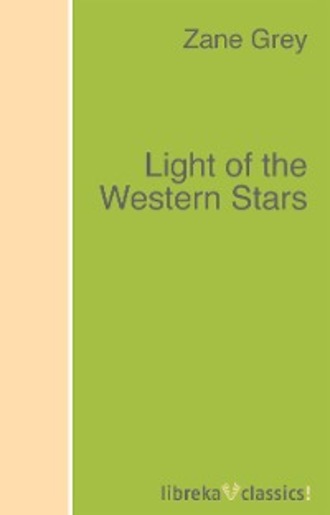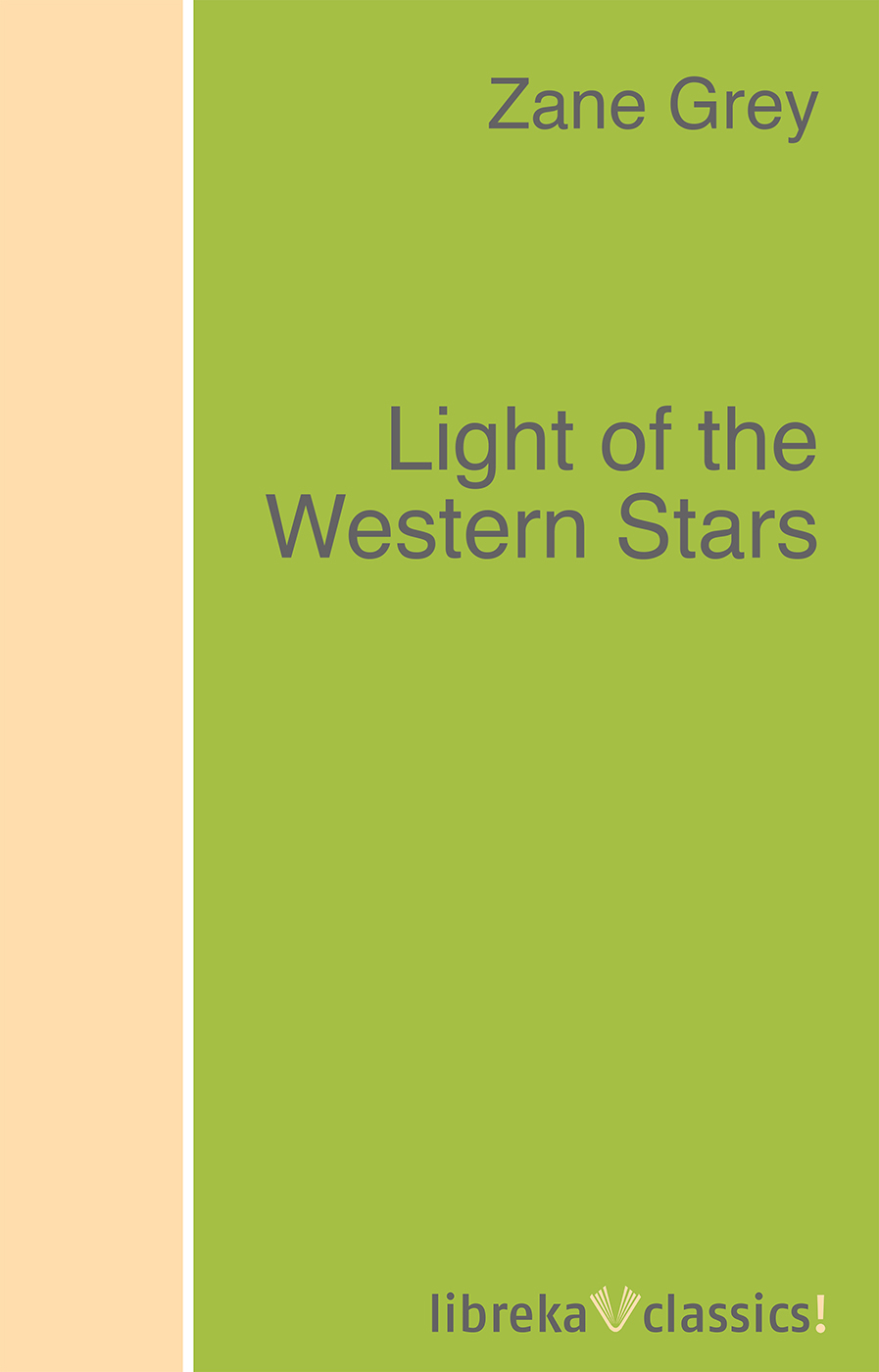
Полная версия
Light of the Western Stars


Titel: Light of the Western Stars
von Scott Hemphill, L. M. Montgomery, L. Frank Baum, John Milton, René Descartes, Baroness Emmuska Orczy Orczy, Karl Marx, Friedrich Engels, Edgar Rice Burroughs, Unknown, Norman F. Joly, Norman Coombs, David Slowinski, Mark Twain, Henry David Thoreau, Stephen Crane, John Goodwin, Nathaniel Hawthorne, Winn Schwartau, Odd De Presno, Sir Walter Scott, Jules Verne, Mary Wollstonecraft Shelley, United States. Central Intelligence Agency, United States, Canada, Willa Sibert Cather, Anthony Hope, Edwin Abbott Abbott, Charles Dickens, Frederick Douglass, William Shakespeare, Bruce Sterling, Franklin Delano Roosevelt, Jane Austen, Thomas Hardy, Sir Arthur Conan Doyle, Edna St. Vincent Millay, Gene Stratton-Porter, Richard McGowan, Frances Hodgson Burnett, United States. Bureau of the Census, Electronic Frontier Foundation, Robert Louis Stevenson, Anonymous, Jerry Bonnell, Robert Nemiroff, Andrew Lang, G. K. Chesterton, John Bunyan, Sunzi 6th cent. B.C., Harold Frederic, Mary Wollstonecraft, Victor Hugo, René Doumic, Upton Sinclair, Virginia Woolf, George Eliot, Thomas Paine, Benjamin Franklin, Plato, Samuel Taylor Coleridge, Ruth M. Sprague, William Dean Howells, Wilkie Collins, Jean Webster, H. G. Wells, Kate Chopin, Mark Eliot Laxer, Louisa May Alcott, Frank Norris, Edith Wharton, S. D. Humphrey, Henry Hunt Snelling, William Morris, Mrs. Susanna Rowson, Christopher Morley, Sax Rohmer, Oscar Wilde, Gaston Leroux, Henry James, Project Gutenberg, Harriet Beecher Stowe, Various, Robert W. Service, A. B. Paterson, Henry Lawson, Jack London, Laozi, D. H. Lawrence, Julius Caesar, Joseph Conrad, W. Somerset Maugham, George MacDonald, Marcus Tullius Cicero, Virgil, Theodore Dreiser, Giuseppe Salza, Rudyard Kipling, ca. 50 BCE-16 BCE Sextus Propertius, Robert A. Harris, William Wells Brown, graf Leo Tolstoy, Omar Khayyám, Michael Hart, Library of Congress. Copyright Office, Coalition for Networked Information, Geoffrey Chaucer, Adam Lindsay Gordon, Hiram Corson, Robert Browning, Amy Lowell, Rupert Brooke, Joyce Kilmer, John Gower, Saki, Kenneth Grahame, Anna Sewell, Martin Luther, Philipp Melanchthon, National Atomic Museum, Alexander William Kinglake, Charles John Cutcliffe Wright Hyne, Amelia Edith Huddleston Barr, James Branch Cabell, Bayard Taylor, Horatio Alger, Booth Tarkington, Hjalmar Hjorth Boyesen, Michael Husted, Émile Gaboriau, Jerome K. Jerome, Stephen Vincent Benét, Edwin Arlington Robinson, J. Frank Dobie, Joseph Rodman Drake, Eliot Gregory, John Fox, John Muir, Richard Harding Davis, Edgar A. Guest, Mary Roberts Rinehart, Thomas Nelson Page, Sir Walter Alexander Raleigh, Rebecca Harding Davis, Charles Alexander Eastman, Zitkala-Sa, Marie L. McLaughlin, J. M. Barrie, Bram Stoker, Hesiod, Edna Ferber, John McCrae, Anna Howard Shaw, Elizabeth Garver Jordan, Frances Jenkins Olcott, P.-J. Proudhon, Eleanor H. Porter, Mary Hunter Austin, Sarah Orne Jewett, Russell Herman Conwell, Daniel Defoe, Henry Benjamin Wheatley, Ambrose Bierce, Nettie Garmer Barker, Martí Joan de Galba, Joanot Martorell, Oliver Goldsmith, Zane Grey, Winston Churchill, Arthur Machen, L. Cranmer-Byng, Torquato Tasso, H. De Vere Stacpoole, Elizabeth Cleghorn Gaskell, Frank Richard Stockton, Rutherford Hayes Platt, Sara Teasdale, Samuel Smiles, W. E. B. Du Bois, Phillis Wheatley, Elbert Hubbard, Richard Jefferies, George Henry Borrow, Sherwood Anderson, Vachel Lindsay, David Graham Phillips, Harry Houdini, Eugene Field, Gustave Le Bon, Henry Brodribb Irving, William Healy, Mary Tenney Healy, Charles Godfrey Leland, Ralph Parlette, Don Marquis, Richard Le Gallienne, Stewart Edward White, Andrew Steinmetz, Madame de La Fayette, Abbé Prévost, Honoré de Balzac, Charles W. Chesnutt, Sara Cone Bryant, William Booth, James Nasmyth, Enrico Ferri, Joe Hutsko, Miriam Michelson, Oliver Optic, Victor MacClure, Calamity Jane, Gertrude Franklin Horn Atherton, Dinah Maria Mulock Craik, Henry J. Coke, Kate Douglas Smith Wiggin, Victor [pseud.] Appleton, Carlo Collodi, Hugh Lofting, John Philip Sousa, Andrew Dickson White, Joseph Sheridan Le Fanu, Isaac Taylor Headland, Amy Steedman, B. M. Bower, William Tuckwell, Clarence Edgar Johnson, Sinclair Lewis, Rex Stout, Carl R. Maag, Steve Rohrer, Mariano Azuela, Royall Tyler, John Buchan, Ross Kay, J. L. Kennon, Eros Urides, Friedrich Schiller, William Cowper Brann, Adelaide L. Fries, Beatrix Potter, Mary Lamb, Charles Lamb, William Blake, Francis Bacon, Samuel Johnson, Tadashi Nakashima, Sidney Lanier, Edward Jenkins, Harriet E. Wilson, Ellen Craft, William Craft, Sir Thomas Browne, Alexander H. Japp, Guy de Maupassant, Thomas Bailey Aldrich, Snorri Sturluson, William Makepeace Thackeray, Fyodor Dostoyevsky, M. G. Lewis, Lucan, Edwin Lester Linden Arnold, Frank Bird Linderman, Tingfang Wu, Baron Alfred Tennyson Tennyson, Japan, Lodovico Ariosto, Alan Seeger, Anthony Trollope, Lewis Carroll, William James, Jonathan Swift, Edward Bellamy, Richard de Bury, Charles Mackay, Eliza Burt Gamble, R. M. Ballantyne, Fanny Van de Grift Stevenson, Mrs. Sutherland Orr, William Sharp, 4th century Smyrnaeus Quintus, Noah Webster, Russ Walter, Plutarch, Charles Kingsley, Frances Ellen Watkins Harper, Sarojini Naidu, Maksim Gorky, Greg Fee, Izaak Walton, U.S. Arms Control and Disarmament Agency, United States. Army. Corps of Engineers. Manhattan District, European Union, Alice Moore Dunbar-Nelson, Bertrand Russell, James Whitcomb Riley, S. Weir Mitchell, Horace Walpole, John Ruskin, Martha Young, Richard Lovelace, Henry Van Dyke, Michael Fairless, E. W. Hornung, Henry Rider Haggard, Edward Sylvester Ellis, Laura Lee Hope, Lafcadio Hearn, William Ernest Henley, John Clark Ridpath, G. Mercer Adam, Charles Keyser Edmunds, John A. Carpenter, Steven Levy, Edward Gibbon, Henry Clay, John C. Calhoun, Thomas Hart Benton, Arthur Brisbane, William Godwin, Walter L. Pyle, George M. Gould, Dornford Yates, Saint John of Damascus, Oliver Wendell Holmes, Hendrik Willem Van Loon, Isabella L. Bird, J. A. Munk, Sir W. S. Gilbert, Sir Max Beerbohm, George Whale, Edmund Day, Marion Mills Miller, John Murray, Mary Mapes Dodge, Abraham Merritt, Anne Brontë, Emily Brontë, Kakuzo Okakura, E. Nesbit, Charlotte Brontë, William J. Claxton, Christopher Marlowe, Sir John Mandeville, Jos. E. Badger, Titus Lucretius Carus, Charles Brockden Brown, Frederick Arthur Ambrose Talbot, Stendhal, Laurence Sterne, F. Scott Fitzgerald, Sophocles, Sir Arthur Sullivan, Graf Ilia Lvovich Tolstoi, Alexis de Tocqueville, H. Barber, Herbert Newton Casson, Frank Lewis Dyer, Thomas Commerford Martin, Frank Tymon, ca. 3rd cent. B.C. Apollonius Rhodius, 12th cent. de Troyes Chrétien, J. Walker McSpadden, Thorstein Veblen, R. D. Blackmore, William Gilmore Simms, Henry Timrod, M. L. Weems, Baron Thomas Babington Macaulay Macaulay, Francis Hopkinson Smith, Mary White Rowlandson, John Dewey, Margaret Mayo, John Mackenzie Bacon, Owen Wister, Agatha Christie, Epictetus, Evelyn Charles Vivian, W. Lockwood Marsh, Washington Irving, John Greenleaf Whittier, James Russell Lowell, Elizabeth Stoddard, Lady Lucie Duff Gordon, Princess Der Ling, John Quincy Adams, F. Marion, Bayard Veiller, Marvin Hill Dana, Octave Chanute, William James Jackman, Thomas Herbert Russell, Bernard Shaw, John Filson, Mikhail Yurevich Lermontov, Alice Isabel Hazeltine, Benedictus de Spinoza, William Dobein James, United States. Presidents., Gustavus Hindman Miller, St. Jude, R. U. Sirius, Mrs. W. G. Waters, Edgar Allan Poe, Abram Joseph Ryan, James Fenimore Cooper, W. H. Hudson, Charles Darwin, Marcet Haldeman-Julius, E. Haldeman-Julius, Robert Southey, Henry Kendall, Howard Pyle, Alexandre Dumas père, Thomas Love Peacock, Cal Stewart, Mary Eleanor Wilkins Freeman, John Munro, Edward Lear, Ellen Key, Thomas Wentworth Higginson, J. M. Synge, Miguel de Cervantes Saavedra, Dante Alighieri, Francis Parkman, Lloyd Osbourne, Graf von Benjamin Rumford, George Grossmith, Weedon Grossmith, Wilfred Owen, Edmund Venables, David Livingstone, George Meredith, Joseph McCabe, Martha Summerhayes, W. W. Jacobs, Thomas Carlyle, American Tract Society, John Fiske, Edward Augustus Freeman, Ulysses S. Grant, Émile Zola, Ernest Bramah, Joseph A. Altsheler, Nikolai Vasilievich Gogol, Nathaniel H. Bishop, Presbyterian Ladies' Aid, Lewis Roth, Ernest Thompson Seton, Giraldus Cambrensis
ISBN 978-3-7429-1040-0
Alle Rechte vorbehalten.
Es ist ohne vorherige schriftliche Erlaubnis nicht gestattet, dieses Werk im Ganzen oder in Teilen zu vervielfältigen oder zu veröffentlichen.
THE LIGHT OF WESTERN STARS
by Zane Grey
Contents
THE LIGHT OF WESTERN STARS I. A Gentleman of the Range II. A Secret Kept III. Sister and Brother IV. A Ride From Sunrise To Sunset V. The Round-Up VI. A Gift and A Purchase VII. Her Majesty's Rancho VIII. El Capitan IX. The New Foreman X. Don Carlos's Vaqueros XI. A Band of Guerrillas XII. Friends from the East XIII. Cowboy Golf XIV. Bandits XV. The Mountain Trail XVI. The Crags XVII. The Lost Mine of the Padres XVIII. Bonita XIX. Don Carlos XX. The Sheriff of El Cajon XXI. Unbridled XXII. The Secret Told XXIII. The Light of Western Stars XXIV. The Ride XXV. At the End of the Road
THE LIGHT OF WESTERN STARS
I. A Gentleman of the Range
When Madeline Hammond stepped from the train at El Cajon, New Mexico, it was nearly midnight, and her first impression was of a huge dark space of cool, windy emptiness, strange and silent, stretching away under great blinking white stars.
"Miss, there's no one to meet you," said the conductor, rather anxiously.
"I wired my brother," she replied. "The train being so late—perhaps he grew tired of waiting. He will be here presently. But, if he should not come—surely I can find a hotel?"
"There's lodgings to be had. Get the station agent to show you. If you'll excuse me—this is no place for a lady like you to be alone at night. It's a rough little town—mostly Mexicans, miners, cowboys. And they carouse a lot. Besides, the revolution across the border has stirred up some excitement along the line. Miss, I guess it's safe enough, if you—"
"Thank you. I am not in the least afraid."
As the train started to glide away Miss Hammond walked towards the dimly lighted station. As she was about to enter she encountered a Mexican with sombrero hiding his features and a blanket mantling his shoulders.
"Is there any one here to meet Miss Hammond?" she asked.
"No sabe, Senora," he replied from under the muffling blanket, and he shuffled away into the shadow.
She entered the empty waiting-room. An oil-lamp gave out a thick yellow light. The ticket window was open, and through it she saw there was neither agent nor operator in the little compartment. A telegraph instrument clicked faintly.
Madeline Hammond stood tapping a shapely foot on the floor, and with some amusement contrasted her reception in El Cajon with what it was when she left a train at the Grand Central. The only time she could remember ever having been alone like this was once when she had missed her maid and her train at a place outside of Versailles—an adventure that had been a novel and delightful break in the prescribed routine of her much-chaperoned life. She crossed the waiting-room to a window and, holding aside her veil, looked out. At first she could descry only a few dim lights, and these blurred in her sight. As her eyes grew accustomed to the darkness she saw a superbly built horse standing near the window. Beyond was a bare square. Or, if it was a street, it was the widest one Madeline had ever seen. The dim lights shone from low, flat buildings. She made out the dark shapes of many horses, all standing motionless with drooping heads. Through a hole in the window-glass came a cool breeze, and on it breathed a sound that struck coarsely upon her ear—a discordant mingling of laughter and shout, and the tramp of boots to the hard music of a phonograph.
"Western revelry," mused Miss Hammond, as she left the window. "Now, what to do? I'll wait here. Perhaps the station agent will return soon, or Alfred will come for me."
As she sat down to wait she reviewed the causes which accounted for the remarkable situation in which she found herself. That Madeline Hammond should be alone, at a late hour, in a dingy little Western railroad station, was indeed extraordinary.
The close of her debutante year had been marred by the only unhappy experience of her life—the disgrace of her brother and his leaving home. She dated the beginning of a certain thoughtful habit of mind from that time, and a dissatisfaction with the brilliant life society offered her. The change had been so gradual that it was permanent before she realized it. For a while an active outdoor life—golf, tennis, yachting—kept this realization from becoming morbid introspection. There came a time when even these lost charm for her, and then she believed she was indeed ill in mind. Travel did not help her.
There had been months of unrest, of curiously painful wonderment that her position, her wealth, her popularity no longer sufficed. She believed she had lived through the dreams and fancies of a girl to become a woman of the world. And she had gone on as before, a part of the glittering show, but no longer blind to the truth—that there was nothing in her luxurious life to make it significant.
Sometimes from the depths of her there flashed up at odd moments intimations of a future revolt. She remembered one evening at the opera when the curtain had risen upon a particularly well-done piece of stage scenery—a broad space of deep desolateness, reaching away under an infinitude of night sky, illumined by stars. The suggestion it brought of vast wastes of lonely, rugged earth, of a great, blue-arched vault of starry sky, pervaded her soul with a strange, sweet peace.
When the scene was changed she lost this vague new sense of peace, and she turned away from the stage in irritation. She looked at the long, curved tier of glittering boxes that represented her world. It was a distinguished and splendid world—the wealth, fashion, culture, beauty, and blood of a nation. She, Madeline Hammond, was a part of it. She smiled, she listened, she talked to the men who from time to time strolled into the Hammond box, and she felt that there was not a moment when she was natural, true to herself. She wondered why these people could not somehow, some way be different; but she could not tell what she wanted them to be. If they had been different they would not have fitted the place; indeed, they would not have been there at all. Yet she thought wistfully that they lacked something for her.
And suddenly realizing she would marry one of these men if she did not revolt, she had been assailed by a great weariness, an icy-sickening sense that life had palled upon her. She was tired of fashionable society. She was tired of polished, imperturbable men who sought only to please her. She was tired of being feted, admired, loved, followed, and importuned; tired of people; tired of houses, noise, ostentation, luxury. She was so tired of herself!
In the lonely distances and the passionless stars of boldly painted stage scenery she had caught a glimpse of something that stirred her soul. The feeling did not last. She could not call it back. She imagined that the very boldness of the scene had appealed to her; she divined that the man who painted it had found inspiration, joy, strength, serenity in rugged nature. And at last she knew what she needed—to be alone, to brood for long hours, to gaze out on lonely, silent, darkening stretches, to watch the stars, to face her soul, to find her real self.
Then it was she had first thought of visiting the brother who had gone West to cast his fortune with the cattlemen. As it happened, she had friends who were on the eve of starting for California, and she made a quick decision to travel with them. When she calmly announced her intention of going out West her mother had exclaimed in consternation; and her father, surprised into pathetic memory of the black sheep of the family, had stared at her with glistening eyes. "Why, Madeline! You want to see that wild boy!" Then he had reverted to the anger he still felt for his wayward son, and he had forbidden Madeline to go. Her mother forgot her haughty poise and dignity. Madeline, however, had exhibited a will she had never before been known to possess. She stood her ground even to reminding them that she was twenty-four and her own mistress. In the end she had prevailed, and that without betraying the real state of her mind.
Her decision to visit her brother had been too hurriedly made and acted upon for her to write him about it, and so she had telegraphed him from New York, and also, a day later, from Chicago, where her traveling friends had been delayed by illness. Nothing could have turned her back then. Madeline had planned to arrive in El Cajon on October 3d, her brother's birthday, and she had succeeded, though her arrival occurred at the twenty-fourth hour. Her train had been several hours late. Whether or not the message had reached Alfred's hands she had no means of telling, and the thing which concerned her now was the fact that she had arrived and he was not there to meet her.
It did not take long for thought of the past to give way wholly to the reality of the present.
"I hope nothing has happened to Alfred," she said to herself. "He was well, doing splendidly, the last time he wrote. To be sure, that was a good while ago; but, then, he never wrote often. He's all right. Pretty soon he'll come, and how glad I'll be! I wonder if he has changed."
As Madeline sat waiting in the yellow gloom she heard the faint, intermittent click of the telegraph instrument, the low hum of wires, the occasional stamp of an iron-shod hoof, and a distant vacant laugh rising above the sounds of the dance. These commonplace things were new to her. She became conscious of a slight quickening of her pulse. Madeline had only a limited knowledge of the West. Like all of her class, she had traveled Europe and had neglected America. A few letters from her brother had confused her already vague ideas of plains and mountains, as well as of cowboys and cattle. She had been astounded at the interminable distance she had traveled, and if there had been anything attractive to look at in all that journey she had passed it in the night. And here she sat in a dingy little station, with telegraph wires moaning a lonely song in the wind.
A faint sound like the rattling of thin chains diverted Madeline's attention. At first she imagined it was made by the telegraph wires. Then she heard a step. The door swung wide; a tall man entered, and with him came the clinking rattle. She realized then that the sound came from his spurs. The man was a cowboy, and his entrance recalled vividly to her that of Dustin Farnum in the first act of "The Virginian."
"Will you please direct me to a hotel?" asked Madeline, rising.
The cowboy removed his sombrero, and the sweep he made with it and the accompanying bow, despite their exaggeration, had a kind of rude grace. He took two long strides toward her.
"Lady, are you married?"
In the past Miss Hammond's sense of humor had often helped her to overlook critical exactions natural to her breeding. She kept silence, and she imagined it was just as well that her veil hid her face at the moment. She had been prepared to find cowboys rather striking, and she had been warned not to laugh at them.
This gentleman of the range deliberately reached down and took up her left hand. Before she recovered from her start of amaze he had stripped off her glove.
"Fine spark, but no wedding-ring," he drawled. "Lady, I'm glad to see you're not married."
He released her hand and returned the glove.
"You see, the only ho-tel in this here town is against boarding married women."
"Indeed?" said Madeline, trying to adjust her wits to the situation.
"It sure is," he went on. "Bad business for ho-tels to have married women. Keeps the boys away. You see, this isn't Reno."
Then he laughed rather boyishly, and from that, and the way he slouched on his sombrero, Madeline realized he was half drunk. As she instinctively recoiled she not only gave him a keener glance, but stepped into a position where a better light shone on his face. It was like red bronze, bold, raw, sharp. He laughed again, as if good-naturedly amused with himself, and the laugh scarcely changed the hard set of his features. Like that of all women whose beauty and charm had brought them much before the world, Miss Hammond's intuition had been developed until she had a delicate and exquisitely sensitive perception of the nature of men and of her effect upon them. This crude cowboy, under the influence of drink, had affronted her; nevertheless, whatever was in his mind, he meant no insult.
"I shall be greatly obliged if you will show me to the hotel," she said.
"Lady, you wait here," he replied, slowly, as if his thought did not come swiftly. "I'll go fetch the porter."
She thanked him, and as he went out, closing the door, she sat down in considerable relief. It occurred to her that she should have mentioned her brother's name. Then she fell to wondering what living with such uncouth cowboys had done to Alfred. He had been wild enough in college, and she doubted that any cowboy could have taught him much. She alone of her family had ever believed in any latent good in Alfred Hammond, and her faith had scarcely survived the two years of silence.
Waiting there, she again found herself listening to the moan of the wind through the wires. The horse outside began to pound with heavy hoofs, and once he whinnied. Then Madeline heard a rapid pattering, low at first and growing louder, which presently she recognized as the galloping of horses. She went to the window, thinking, hoping her brother had arrived. But as the clatter increased to a roar, shadows sped by—lean horses, flying manes and tails, sombreroed riders, all strange and wild in her sight. Recalling what the conductor had said, she was at some pains to quell her uneasiness. Dust-clouds shrouded the dim lights in the windows. Then out of the gloom two figures appeared, one tall, the other slight. The cowboy was returning with a porter.
Heavy footsteps sounded without, and lighter ones dragging along, and then suddenly the door rasped open, jarring the whole room. The cowboy entered, pulling a disheveled figure—that of a priest, a padre, whose mantle had manifestly been disarranged by the rude grasp of his captor. Plain it was that the padre was extremely terrified.
Madeline Hammond gazed in bewilderment at the little man, so pale and shaken, and a protest trembled upon her lips; but it was never uttered, for this half-drunken cowboy now appeared to be a cool, grim-smiling devil; and stretching out a long arm, he grasped her and swung her back to the bench.




